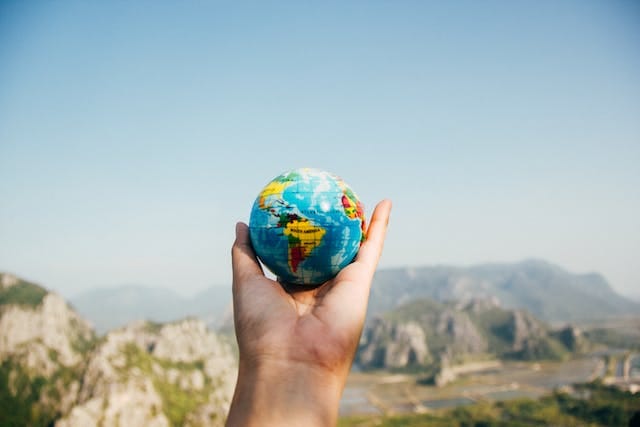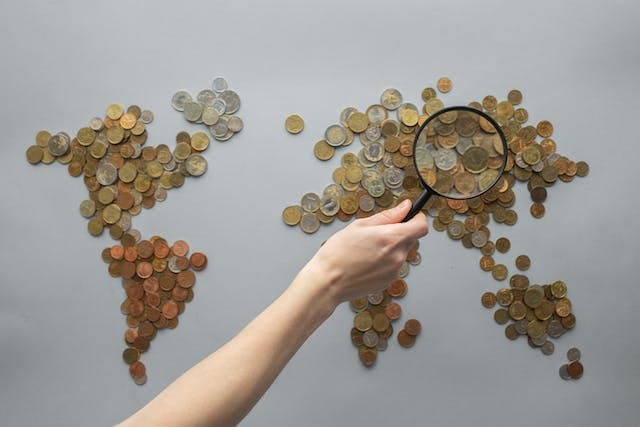Navigating the Waters of 2023_ Insights into the International Political Economy
Explore the complex international political economy of 2023. Gain insights, analysis, and perspectives navigating global economic and political landscapes, shaping the year's dynamics and developments

Introduction to the International Political Economy
The international political economy is a complex and ever-evolving field that examines the interactions between politics and economics on a global scale. It encompasses the study of how nations, governments, and international organizations navigate the intricacies of trade, finance, and development. As we embark on the year 2023, it becomes increasingly important to understand the dynamics and trends that shape the international political economy. This article aims to provide insights into this fascinating field, exploring key concepts, historical perspectives, major theories, current challenges, the role of international organizations, the impact of globalization, case studies, and future prospects.
Key Concepts in the International Political Economy

To comprehend the international political economy, it is crucial to grasp some key concepts. One such concept is the notion of sovereignty, which refers to a nation's ability to govern itself without interference from external actors. Another important concept is comparative advantage, which states that countries should specialize in producing goods and services they can produce most efficiently. Additionally, the concept of economic interdependence recognizes the interconnectedness of nations through trade, investment, and finance. Understanding these concepts provides a foundation for analyzing the dynamics of the international political economy.
Historical Overview of the International Political Economy
The origins of the international political economy can be traced back to the mercantilist era, where countries sought to accumulate wealth through trade and colonialism. The field evolved during the Industrial Revolution and the subsequent rise of capitalism. The establishment of the Bretton Woods system after World War II marked a turning point, as it introduced a framework for international economic cooperation. The system collapsed in the 1970s, leading to the emergence of neoliberalism and the era of globalization. Examining the historical development of the international political economy helps us understand the path it has taken and the challenges it faces today.
Major Theories in the International Political Economy
Several theories provide frameworks for analyzing the international political economy. One prominent theory is liberalism, which emphasizes free markets, individual freedom, and limited government intervention. Another theory is mercantilism, which focuses on the accumulation of wealth and the protection of domestic industries. Marxism, on the other hand, views the international political economy through the lens of class struggle and exploitation. Realism emphasizes power dynamics and national interests in shaping economic relations between nations. Each theory offers unique insights into the complexities of the international political economy.
Current Trends and Challenges in the International Political Economy
The international political economy is currently facing various trends and challenges. One significant trend is the rise of protectionism, with countries imposing tariffs and trade barriers to protect domestic industries. Technological advancements, such as automation and artificial intelligence, also pose challenges as they reshape labor markets and create inequalities. Additionally, climate change and environmental degradation have become pressing issues that require international cooperation. These trends and challenges highlight the dynamic nature of the international political economy and the need for effective policy responses.
The Role of Major International Organizations in the International Political Economy
International organizations play a crucial role in shaping the international political economy. The International Monetary Fund (IMF) and the World Bank provide financial assistance and promote economic stability and development. The World Trade Organization (WTO) facilitates negotiations and enforces rules in international trade. Regional organizations, such as the European Union, foster economic integration and cooperation. These organizations serve as platforms for dialogue, coordination, and governance, contributing to the stability and functioning of the international political economy.
The Impact of Globalization on the International Political Economy

Globalization has had a profound impact on the international political economy. It has facilitated the flow of goods, services, capital, and ideas across borders, leading to increased interconnectedness and interdependence. Globalization has opened up new opportunities for economic growth and development, but it has also created winners and losers. The integration of markets has brought about both benefits and challenges, such as income inequality and the erosion of national sovereignty. Understanding the complexities and consequences of globalization is essential for navigating the waters of the international political economy.
Case Studies in the International Political Economy
Examining case studies provides valuable insights into the dynamics of the international political economy. One such case study is the economic rise of China, which has transformed global trade and investment patterns. Another case study is the European debt crisis, which exposed vulnerabilities in the Eurozone and tested regional economic integration. Additionally, the impact of oil prices on the economies of oil-producing nations offers a compelling case study. These real-world examples illustrate the complexities and interplay of politics and economics in the international arena.
Future Prospects and Predictions for the International Political Economy
Looking ahead, the international political economy faces numerous uncertainties and challenges. Technological advancements, geopolitical tensions, climate change, and income inequality are among the key factors that will shape its future. Predicting the exact outcomes is challenging, but it is evident that the international political economy will continue to evolve and require adaptive strategies. Embracing innovation, fostering cooperation, and addressing global challenges collectively will be essential for navigating the waters of the international political economy in the coming years.
Conclusion
As we navigate the waters of 2023, understanding the international political economy becomes increasingly vital. This article has provided insights into key concepts, historical perspectives, major theories, current trends and challenges, the role of international organizations, the impact of globalization, case studies, and future prospects. By comprehending the dynamics and complexities of the international political economy, individuals, governments, and organizations can make informed decisions and contribute to a more stable and prosperous global economy. Let us embrace the opportunities and challenges that lie ahead as we continue to navigate the ever-changing waters of the international political economy.
CTA: Stay informed and engage in discussions about the international political economy to broaden your understanding of global dynamics and contribute to shaping a more equitable and sustainable future.




